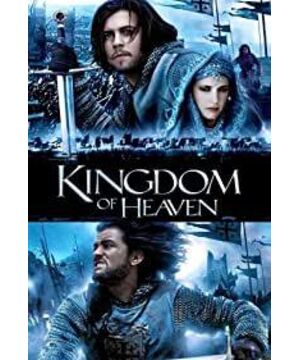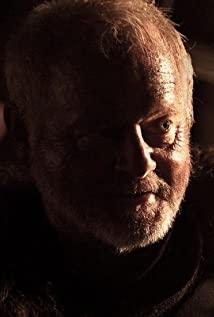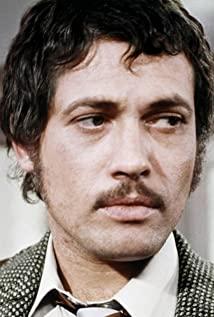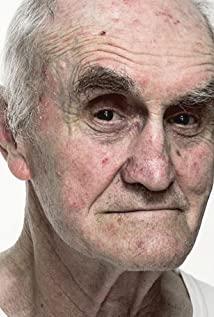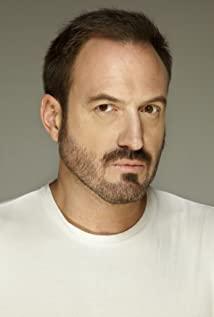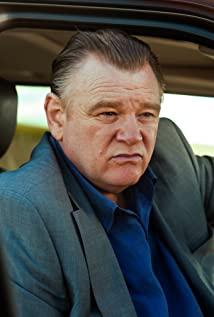Before writing this, I read many reviews of the film, either praising the shock of the war scenes or denouncing the absurdity of the storyline, or questioning the director's handling of ethnic and religious boundaries. However, I don't think any of that can offset my love for the movie, and some of the lines in it.
"She committed suicide by beheading her head."
Suicide is an unforgivable sin for Christians, and according to Jesus Christ, love is tolerance.
This film of suffering and death begins with corpses and graves. The blacksmith's wife couldn't bear the blow of the premature death of her parents and chose to commit suicide. When the priest buried the blacksmith's wife, he took the cross hanging around her neck for himself. When he left, he said lightly, "She committed suicide, cut off her head, remember to return the hoe." And this greedy face The abominable priest ended up being killed, and it was the blacksmith Balian who killed him.
I don't believe in Christ, but I respect all interpretation and guidance in the Bible. God has reasons to be overbearing, depriving people of the right to seek liberation while giving benevolence, because in the hearts of the people, everything is dominated by God. Since ancient times, people have liked to worship the puppet shrines made by themselves to protect the fragility of life and seek spiritual sustenance. And when you disobey the teachings of God, then your life will be controlled by God. Heaven and earth, beyond reproach.
"Killing the infidel is not murder, it is the way to heaven."
Missionaries who spread the truth can be seen everywhere on the European continent in the 12th century. A smiling Christian kept repeating this phrase to Balian and others passing by, "Killing a heretic is not murder, it is the way to heaven." When the swords were drawn between the two sides in the final war, another Muslim ran out to add fuel to Salahodin, the leader of the Muslim army, and incited the army to do whatever it took to retake the Holy City. They are all disciples of God, but they all have devilish faces and hearts. Between Christianity and Islam at that time, the difference of beliefs had completely devolved into an armed confrontation over Jerusalem and an unprecedented fanatical hatred.
Both sides of the war were infidels. Three different faiths made the holy city of Jerusalem, and Jerusalem suffered frequent wars because of the huge pull between the three religions. The suffering of Jesus' crucifixion could not stop the centuries-long war of the First Crusade. But God's intention is to redeem sins.
"I can fight for two days with arrows in my testicles"
Godfrey is the only man in this film who never backs down and never fails - a general with a huge bull, and even Salahodin, known as the "Muslim God of War", almost died in the in his hands. Loved Liam Neeson who played this role. There was no fear and abandonment on his face. Facing his long-lost son, he showed not the love of a father but the majesty of a soldier, teaching his blacksmith son that a man should be better at swordsmanship. There must be lofty pursuits; in the face of imminent death, poised and fearless, the fortitude of this man who has been baptized by countless wars is everywhere. Before he died - ascended to heaven? — at the last moment, he asked his son to "defend the king, and if the king is gone, defend the people."
Godfrey told Balian to build in the Holy City "a better world, a kingdom of righteousness, a kingdom of heaven on earth, Christianity and Muslims live in peace, and Saladin and our king do not invade each other." This is perhaps the most accurate definition of the kingdom of heaven. The general who blood-washed Jerusalem with the Crusades was more like a philosopher at this time. He was benevolent, he didn't repent, he didn't justify his sins, he had the most enlightened and far-sighted thinking at that time, and he was a very fashionable person.
"Kings don't kill other kings, and you don't have the spirit of a king at all."
This is a conversation between two kings. Victory and defeat, the victor, salahodin, has reason to mock the defeated Guy. The irony is that this war genius actually hates iron to become steel in the face of his opponent. The film's handling of Princess Sibylla's husband-in-law, later "King" Guy, goes a little too far. The film blindly shows his arrogance and incompetence, but as the most powerful among the Crusaders, even the king must fear him three-pointed and betrothed the princess to his warlord, obviously it is impossible to have only such a little ability. As for this political madman, who saw the throne at his fingertips, he encountered Balian's strong potential stock at the last minute, and hurriedly provoked a war to prove his psychology is understandable, is he a man after all? It's just that in the arena of the highest level, he hasn't played yet. I liked the actor who played salahodin, but the arrogant westerner wouldn't bother to describe the wisdom and exploits of this war genius after all.
"We did our best to prepare. The last battle in this city was the grudge of the previous generation. The Muslim army that was killing was not yet born. We were forced to fight. We did not seize the city, only defend it. The enemy who was humiliated by the lost city is long gone. What is Jerusalem? Your holy place is located on the Jewish temple demolished by the Romans, and this holy place is located on your holy place. Who has the right to occupy this The city? No one has the right, everyone has the right. We guard the city, not to protect the stones, but to protect the people in the city."
Jerusalem, as the "Bible" says, was given to the descendants of Israel by God, and it is everywhere. With milk and honey. Jerusalem, the center of the earth, more fertile and richer than all the land in the world, is another paradise full of joy.
In the origin and spread of the three major religions, the city of Jerusalem has played the role of a holy place. The Temple, the Western Wall, the Mosque, and the Crucifixion of Jesus are all places of pilgrimage for believers of all religions. The peaceful coexistence of various religions also caused the holy city to suffer the impact of war constantly because of the mutual aggression and killing among the believers. After the Battle of Hattin, the Muslims recaptured Jerusalem. This is the 18th time Jerusalem has been captured in the history of inter-religious confrontation. The Crusades have a history of nearly a hundred years. The piety and admiration of the believers for God has been distorted in various ways in the evolution of history. The souls of the dead have not yet dispersed, and the war continues.
Balian's progress is astonishing, both on and off the screen. The movie doesn't explain much about how he grew from the son of a knight to another king of Jerusalem, and how a blacksmith could make such a declaration of war. When war comes, an impassioned speech by a leader is immeasurable in boosting morale. This reminds me of the speech of the "President of the United States" in "Independence Day" before fighting back against UFOs. It was really impassioned and heartening. Only that manifesto sounded more dramatic, and this one seemed more flesh and blood. "Facing the enemy, don't be afraid, and keep moving forward. God will love you. In the face of death, you must speak the truth and defend the weak. This is your declaration." At this time, Balian was no longer the blacksmith he used to be. But the true leader of the city of Jerusalem. He understood the true meaning of the Kingdom of Heaven—what he wanted to do was to protect the people in the city and build a kingdom of benevolence and righteousness for his father in the hearts of the people, a kingdom of heaven on earth.
In the end,
Balian's tenacious belief and the united struggle of the defending soldiers won the opportunity for the people in the city to negotiate terms with salahodin. The final negotiation ended. Balian's glorious surrender won the victory for him and his people. At that moment, he became king of Jerusalem, a king of Jerusalem who was about to hand over the city of Jerusalem. And when he turned around and asked another king salahodin "What does Jerusalem worth?", the answer was "Nothing". Salahodin took a few steps and smiled contentedly at the opponent he had to admire: "everything".
In the end, all the people in the city went out to sea safely, and Balian and Sibylla rode their horses. The dust settled in front of the walls of Jerusalem, the high tide fell to the horizon, and the result of the war was a death-like silence, but this silence is always short-lived. Perhaps there is no dynasty in the kingdom of heaven, and the one that can truly be peaceful is the one that remains in the heart.
"I'm the King of England, and they call me Lionheart."
"I'm just a blacksmith."
View more about Kingdom of Heaven reviews


